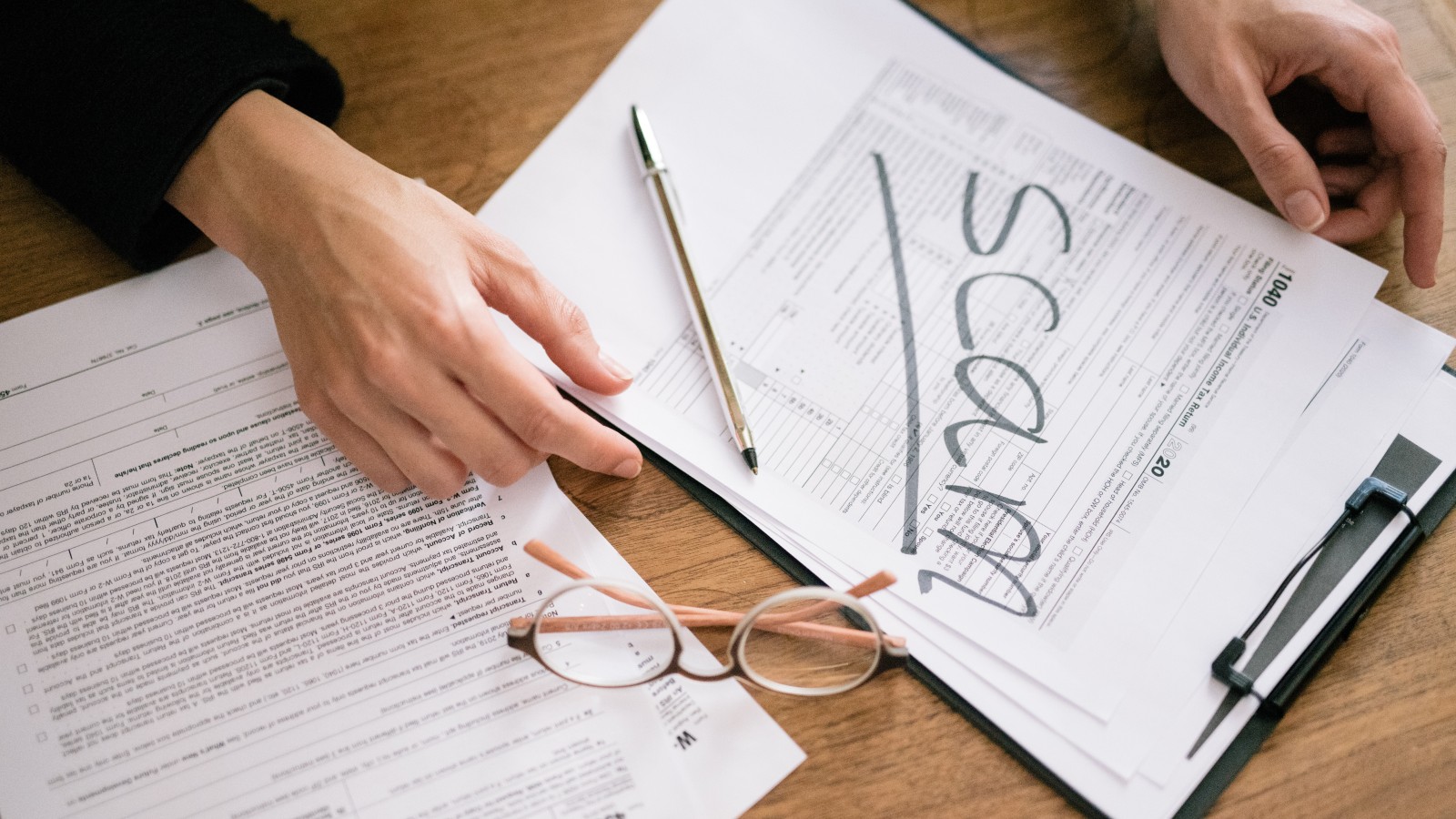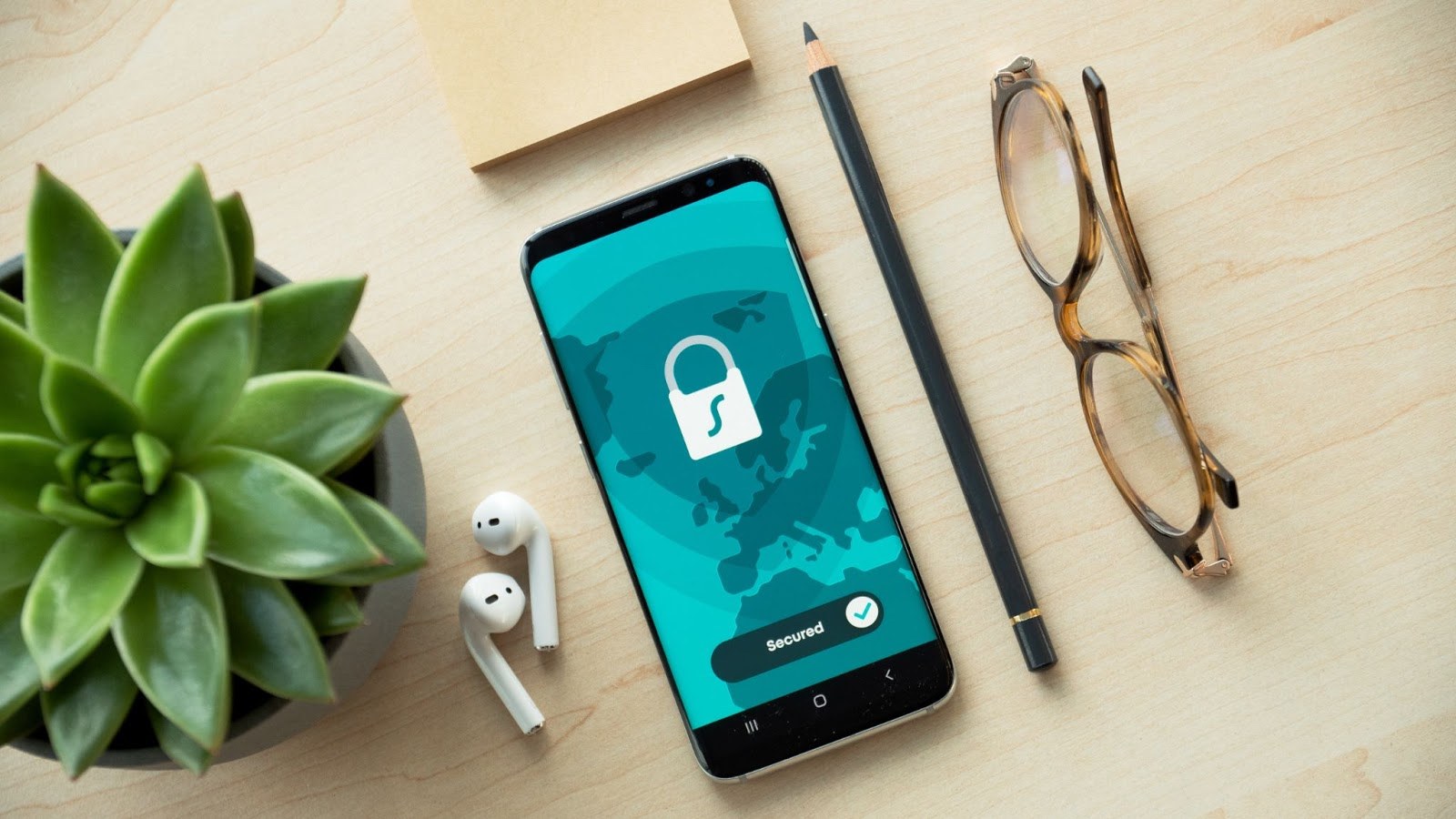Financial scams: how to spot common fraud attempts
A detailed guide on different types of financial scams, how to identify them and where to report them.

Table of Contents
Financial scams can take many forms, but ultimately a financial scam is when someone takes money or other assets from you through misleading, deceptive or criminal methods.
This could be achieved by tricking you into revealing personal details and stealing your information, and funds, or impersonating a legitimate business or person and convincing you to transfer funds directly.
It’s important to recognise the signs of common scams to protect yourself from them. We also cover what to do if you have fallen victim to any of these scams.
One thing to note is that if you’re ever transferring money abroad as part of an investment, always use regulated solutions. In a scam situation, you could be asked to make a payment by purchasing a gift card, or by sending money through an unregulated money transfer service.
As a regulated foreign exchange platform, CurrencyFair employs several security measures to ensure all transfers through our service are as secure as possible. You can transfer money safely and securely, with world-class customer support and competitive exchange rates up to eight times cheaper than the banks.
Modern scammers have sophisticated methods to convince you to part with your money. Whether it was a suspicious link in an email or an SMS telling you to confirm a payment with your bank, chances are you have encountered at least one form of scam attempt already.
If you have fallen victim to a financial scam, you can report it to the following resources depending on your location:
-
Australia - Scamwatch.
-
Europe - a collection of various reporting resources for Europe.
-
The United Kingdom - Action Fraud.
-
The United States - The Federal Trade Commission (FTC).
Facebook Marketplace scams affect one in six users, according to a 1,000-person survey by thinkmoney, a digital banking company.
As of 2021, Facebook Marketplace reportedly had over one billion monthly users. With so many potential victims congregating in one place, hopeful of picking up a bargain or offloading their unwanted things, Facebook Marketplace scammers target the platform in a variety of ways.
The following tactics are commonly seen in Facebook Marketplace scams, and if you suspect a buyer, seller or listing you can report it to Facebook here.
Google voice verification code scam
Let’s say you’re selling a necklace on Facebook Marketplace, and someone gets in touch to say they’re interested in it, but unfortunately, they have been scammed before and need some proof that you’re a real seller.
You want to prove that you’re trustworthy, so when they ask you for your phone number and tell you they sent you an authentication code to prove that it’s you, you happily oblige and repeat it back to them.
Now they have all they need to set up a Google Voice account in your name, using your phone number, and the “authentication” code is actually the two-step verification code needed to complete the set-up process.
Not only does this allow them to use a Google Voice account linked to your phone, but it may leave your entire Google account compromised, including your Gmail and stored passwords. This type of scam is also seen in text phishing and isn’t targeting your money, but your personal information.
You should never share your Google Authenticator code with anyone, and if you believe your number was claimed in this way you can follow these instructions to recover it.
Scammers try to push communication methods away from Facebook as then the conversation can’t be monitored, and it’s more difficult to report. When you’re using Facebook Marketplace, keep all your communication within Facebook Messenger, and don’t give out your personal phone number to sellers or buyers.
Gift card scams on Facebook Marketplace
Most legitimate sellers won’t accept gift cards as payments, as you should be wary of anyone asking for a gift card code. Once you have provided a gift card code as payment, there’s no record of the transaction, unlike using a secure payment method. Facebook also warns people not to buy gift cards on Marketplace for this reason.
Overpayment and refund scams on Facebook Marketplace
Scammers target sellers on Facebook Marketplace by claiming to have sent payment for an item and may even include a screenshot verifying payment, but the total amount is for more than the item is listed for. The scammer will then ask the potential victim to refund them the difference, leaving them out-of-pocket before disappearing.
Stolen, faulty and fake goods
High-value items should be treated with particular caution on Facebook Marketplace, as they’re some of the most commonly offered fake, faulty or stolen scam goods on the platform. Be wary of deals that seem too good to be true on brand-name bags, sunglasses, shoes, gaming consoles and headphones.
If you’re buying a piece of expensive tech online, you should meet in a safe public place or police station so you can thoroughly test and inspect it before handing over payment. Phones, laptops and bikes are frequently stolen and resold as they’re always in demand. Be on the lookout for sellers insisting on a deposit for a car, and use these trusted checks before buying a used iPhone or Mac.
Fake apartment listings on Facebook Marketplace
As cities around the world face rental crises, the demand for rental apartments and houses has created a golden window of opportunity for scammers to make their move on desperate house hunters.
Facebook Marketplace scammers aim to separate people from their money by posing as landlords and collecting deposits or rent for properties they have no legitimate claim to. Watch out for these signs:
-
Properties that have duplicate listings with only the contact information changed.
-
Check out when the person advertising the property created their account - a brand new profile with minimal details is a tell-tale sign of a scammer.
-
Be cautious of people who ask for upfront cash payments.
-
Inspect the property in person before handing over any money.
-
Cross-reference the property to check if it appears on other websites.
How to avoid Facebook Marketplace scams
Some of the following tips may seem like common sense when listed together like this, but scammers can be clever. They’ll often include an elaborate back story to justify the information, and their targets range in age from teens to pensioners. It’s also worth refreshing some general online security tips to protect your privacy.
-
Always check when the Facebook profile was created. You can find it on the right side of the listing under “seller information”.
-
Only communicate through Facebook Messenger.
-
Don’t pay in advance for items that you’re collecting locally, and meet the seller in a safe, public place like the car park of a police station.
-
Search for the seller’s details, like their email address, online to see if they have been flagged as a scammer already on other websites or forums.
-
Be wary of suspiciously low prices, particularly if they come with an elaborate backstory for why the price is so low.
-
If you’re selling on Facebook Marketplace, don’t send buyers the authentication code outlined above.
-
Don’t meet buyers that refuse to meet somewhere safe and public.
-
Avoid buyers and sellers that push you to use payment or communication methods that don’t have protections in place.
A trip to Barcelona, Rome, Prague, Madrid or Paris, might seem like a great opportunity to sample some cultural delights. Yet to a seasoned traveller, these five destinations would ring alarm bells as the five worst cities for pickpockets.
Losing your wallet isn’t the only tourist scam you have to worry about on holiday. One in 10 holidaymakers falls victim to a travel scam during their trip. Holidaymakers are an ideal target for lone opportunists and organised criminal gangs. When you’re on vacation, you might be speaking a different language, handling an unfamiliar currency, and dropping your guard. To make sure you come back with the right memories from your trip, watch out for these 15 common types of tourist scam.
-
Pickpockets and street distraction.
-
“Free” trinkets, like bracelets and lucky charms, are placed on your arm — the seller then demands payment once they’re on your body.
-
Giving the wrong change, or implementing a “slow count” so that tourists in a rush snatch up the remaining coins and say “merci” without counting it.
-
Credit card skimming.
-
Rigged ATMs.
-
Spiked local delicacies, like drinks or snacks on a train journey.
-
Fake timeshares.
-
Fake WiFi hubs.
-
Taxi scams.
-
Fake prices in restaurants.
-
Fake goods.
-
“0% commission” on currency exchange.
-
A friendly stranger that lures you to a second location, where a trap is waiting.
-
Faulty car or bike rentals.
-
Fraudulent fees or fines.
For more details on these scams and how to avoid them, check out: 15 common tourist scams to avoid while you travel.
15 common tourist scams to avoid while you travel.
10% of holidaymakers fall victim to a travel scam. Learn to recognise these common holiday scams and what to do if you've been caught out.

If you are scammed while travelling, you need to report the incident immediately to the following:
-
Local police - You will need a police report to make an insurance claim back home.
-
Your bank - Block all your cards if necessary and request a refund on any unauthorised payments. If you are stuck without funds overseas, your bank fraud department should be able to deliver a replacement quickly to a local pick-up point.
Check your statements online and freeze your credit report so that no one can open up new lines of credit in your name if your identity is stolen.
The first step in tackling investment fraud is understanding the kind of scams out there, and how and where they happen. We’ve rounded up a few of the most common.
Investment bond scams
These expensive scams take place when fraudsters impersonate investment products – more specifically – bonds. Their aim is to collect personal details from investors, and ultimately scam potential victims out of their money.
Investment bond scams are promoted through Google and Facebook links, cold calling, classified adverts in newspapers or magazines, and even fake price comparison sites. A spokesperson from Aviva explained that scammers have been tricking savers by pretending to be part of the company. Bogus sites were set up offering return rates of 5-6% on overseas investments.
Cryptocurrency fraud
Scammers promote attractive cryptocurrency investments to their victims, typically on social media platforms, or via cold calls. Tempted by the promise of lucrative investments, consumers upload their personal credit card details or driving license/passport information to a fake site, in the belief they’re signing up for a trading account. Investors pay an "initial minimum deposit" to set up their account, after which they hear nothing from the fraudsters.
Often called "Nigerian" scams, because of their prevalence in Nigeria in the 1990s, these investment scams also go by the name of "419 fraud" (the relevant section of the country’s criminal code), or "advance-fee" scams. Note that the scam is not limited to Nigeria.
This kind of investment scam takes place when the criminal sends a request to a stranger, asking for help in transferring money. The sender usually has a long, often tragic, story to back up the request, and it’s often sent via email. In return for helping the sender, the victim is offered an appealing commission. The scammers ask for money upfront, and on receiving the funds they disappear. Some even succeed in getting more money with claims of continued transfer problems. Of course, the victim never gets their commission.
For more on how to avoid this kind of scam, check out: Staying wise to investment scams.
Staying wise to investment scams
The first step in tackling investment fraud is understanding the kind of scams out there. As well as how and where they happen. We’ve rounded up a few of the most common.

Pension scams, or retirement scams, can be devastating. By targeting vulnerable older people and their families, scammers leave victims without the funds to provide for their retirement. For many older individuals, their retirement funds are their single largest asset and the high value may make them an attractive target for scammers.
A pension scam aims to convince pension savers to transfer some or all of their retirement pot into the scammer’s possession. This usually starts with unexpected contact from someone offering an investment opportunity or early access to their pension money. Even the most financially savvy saver can fall victim to pension scams, as scammers make enticing claims to persuade people to part with their retirement fund. Here are two pension scams frequently reported:
Fake pension investment scams
In one of the most common forms of pension scams, scammers target people aged 55 and over to offer them investment opportunities with high returns. The false investments offered are frequently overseas, where the intended victim will have less consumer protection, and “guarantee” a high rate of return in investments such as overseas property, hotels, energy bonds or storage units.
Scammers hope to convince pension savers to transfer some or all of their pension savings into these schemes, which often either don’t exist or are high risk with low returns. For more information on investment scams and how to spot them, see our previous article: Staying wise to investment scams.
“Pension liberation” scams
Pension liberation scams offer intended victims “loopholes” or “pension loans” to gain early access to their pension savings before the age of 55, promising no charges for early access. The reality is that accessing your pension early is only allowed in very special circumstances, such as poor health.
This can lead to the victim unintentionally committing pension liberation fraud, where pension savers try to transfer their benefits to an unregulated scheme before the age of 55. In this case, not only could the intended victim lose their retirement savings, but they could also face a tax bill from Her Majesty's Revenue and Customs (HMRC) of 55% – and possibly as high as 70% – of the value of their full pension savings.
For more information on spotting pension scams and protecting your assets, check out: Pension scams and how to spot them.
Pension scams and how to spot them
Pension scams, or retirement scams, can be devastating. Protect yourself and your assets by learning how to recognise the tell-tale signs of a pension scam.

SMS scams, also called “smishing”, aim to trick you into divulging personal information by clicking a seemingly safe link, or submitting your personal details.
The texts appear convincingly real and are most commonly about missed deliveries, tax refunds, or bank payments. They may ask you to pay a missed delivery charge or tax fee and are sent from numbers that claim to be delivery companies or government agencies.
Scammers hope to convince you to hand over your personal information — identifying details such as your name, mother’s maiden name or even bank details — because they can then use them for all types of fraud.
Recent research shows that more online scams are affecting millennials (born between the early 1980s and mid-1990s) and Generation Z (born between the mid-1990s and early 2010s) than ever before.
In a report from Social Catfish entitled The State of Internet Scams 2021, findings reveal that the number of online scam victims aged 20 and younger increased by 156% between 2017 and 2020.
People aged 18 to 29 are also more likely to become victims of identity theft than any other age group. The report puts forward a number of possible reasons for this:
-
Younger people have grown up with the internet, so they’re more comfortable with sharing personal information online.
-
Millennials are currently favouring non-traditional payment methods, some of which have fewer built-in fraud protection methods in comparison with traditional credit cards, leaving them more vulnerable to financial scams.
-
Most of the latest scams play out on social networking sites such as Facebook, Google Hangouts, Instagram and WhatsApp, where the majority of users are aged 25-34 - falling into the millennial category.
For more information on the types of scams targeted at Gen Z and teenagers, check out: Online security: Gen Z and teens more likely to fall victim to scams.
Online security: Gen Z and teens more likely to fall victim to scams
Online scams are affecting millennials and Generation Z more than ever. Read our overview of scams affecting young people to stay informed and aware.

As we move more and more of our personal and professional lives online, we become increasingly vulnerable to the theft and misuse of our data. Thankfully, steps can be taken to bolster your internet safety and strengthen control over your digital footprint. Here are six simple online security measures recommended by experts:
-
Have a strong, separate password for your email account.
-
Use a password vault.
-
Make the most of multi-factor (or two-factor) authentication (MFA/2FA).
-
Increase internet security on your phone by keeping it protected and up to date.
-
Secure your browser.
-
Keep up to date on phishing/smishing scams.
For a detailed breakdown of each of these tips, check out: Personal online security tips to protect your privacy.
Personal online security tips to protect your privacy
The number and range of threats to our online security and digital privacy keep growing. Here are 6 simple online security measures recommended by experts.

And finally, if you’re sending money abroad, always use regulated solutions. As a regulated foreign exchange platform, CurrencyFair uses 2FA, encryption via SSL, segregated accounts, thorough verification and multiple other safety measures to ensure all transfers through our service are as secure as possible.
Transfer money safely and securely, with world-class customer support and competitive exchange rates up to eight times cheaper than the banks.
It offers secure money transfers to over 150 countries and over 20 currencies. You can choose to send money with our quick, low-cost money transfers, or set your own rate on the Marketplace, and wait for the market to meet it — meaning you could even beat the market rate that you see online.
Sign up now
Join over 170,000 happy customers who have saved millions with CurrencyFair.
Related articles
If you are interested in protecting yourself against scams we thought you might also like these blog posts.

Staying wise to investment scams
The first step in tackling investment fraud is understanding the kind of scams out there. As well as how and where they happen. We’ve rounded up a few of the most common.

Pension scams and how to spot them
Pension scams, or retirement scams, can be devastating. Protect yourself and your assets by learning how to recognise the tell-tale signs of a pension scam.

Personal online security tips to protect your privacy
The number and range of threats to our online security and digital privacy keep growing. Here are 6 simple online security measures recommended by experts.
Disclaimer
This information is correct as of June 2022. This information is not to be relied on in making a decision with regard to an investment. We strongly recommend that you obtain independent financial advice before making any form of investment or significant financial transaction. This article is purely for general information purposes.
